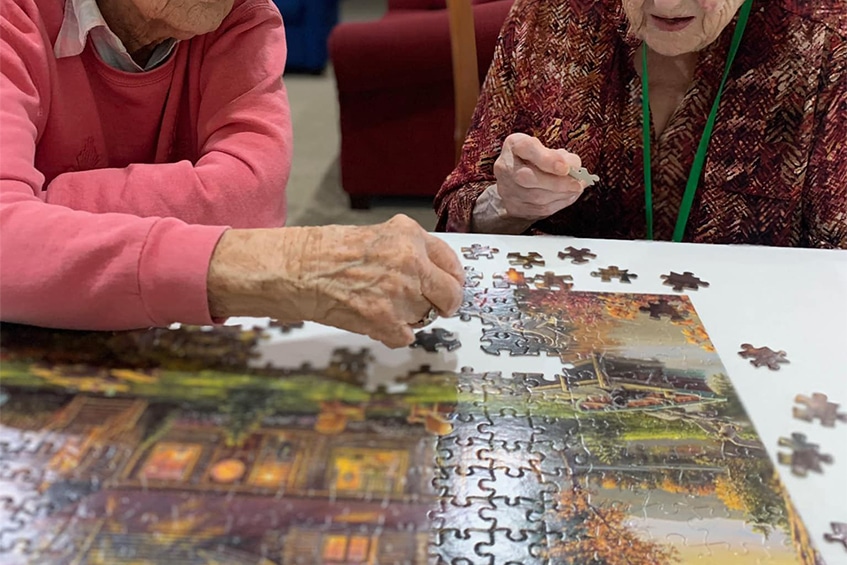Aging is a remarkable journey marked by a tapestry of experiences, challenges, and moments of wisdom. As we traverse the winding path of life, we encounter not only the joys of yesteryears but also the inevitable changes that come with growing older. For many seniors, the golden years can be tinged with unique mental health challenges. It’s crucial to understand that aging and mental health are intertwined, and providing quality care is paramount in ensuring the well-being of our elderly loved ones. The complexities of mental health in aging and the profound positive impact that high-quality care can have on the lives of seniors.
The Connection Between Aging and Mental Health:
Aging, with its inevitable physical changes and life transitions, can bring forth a range of mental health challenges. Loneliness, grief from losing loved ones, chronic illnesses, and cognitive changes are just a few of the factors that can impact mental well-being in the elderly. Depression, anxiety, and cognitive disorders like dementia become more prevalent as individuals age. It’s essential to recognize that these challenges are not an inherent part of aging but rather a result of various life circumstances and physiological changes.
The Importance of Quality Care:
Quality care plays a pivotal role in addressing the mental health needs of our aging population. Here are some key aspects of how high-quality care can make a difference:
- Early Detection and Intervention: Quality care providers are trained to recognize the early signs of mental health issues in seniors. Timely intervention can prevent the escalation of these challenges.
- Emotional Support: Aging can be emotionally taxing. Quality caregivers provide emotional support, a compassionate ear to listen, and companionship, which can significantly alleviate feelings of loneliness and depression.
- Tailored Care Plans: Every senior is unique, and quality care providers create personalized care plans that consider individual mental health needs. This ensures that the care provided is not only effective but also respectful of the senior’s dignity.
- Engaging Activities: Mental health in aging is not just about addressing disorders; it’s also about promoting overall well-being. High-quality care facilities offer engaging activities that stimulate cognitive functions and foster a sense of purpose.
- Family Involvement: Quality care is a collaborative effort involving families. Care providers involve family members in the care process, ensuring a holistic approach to mental health support.
- Safe and Comfortable Environment: Seniors need a safe and comfortable living environment. Quality care homes are designed to provide this, reducing stress and anxiety.
The Role of BeeHive Homes:
At BeeHive Homes, we understand the intricate relationship between aging and mental health. Our commitment to providing top-quality care extends to addressing the mental well-being of our residents. Our caregivers are trained to identify and support mental health needs, and we offer a range of engaging activities that promote cognitive health and emotional well-being. We recognize that each senior in our care is unique, and we tailor our services accordingly.
Aging brings its set of challenges, but with the right care, seniors can continue to lead fulfilling lives with good mental health. Quality care, like that offered at BeeHive Homes, plays a pivotal role in this journey. By understanding the connection between aging and mental health and providing compassionate, personalized care, we can ensure that our elderly loved ones enjoy their golden years with the dignity and support they deserve.

